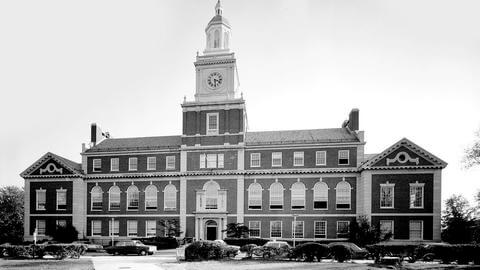History
Howard ranks among the highest producers of the nation's Black professionals in medicine, dentistry, pharmacy, engineering, nursing, architecture, religion, law, music, social work and education.
The University has long held a commitment to the study of disadvantaged persons in American society and throughout the world. The goal is the elimination of inequities related to race, color, social, economic and political circumstances. As the only truly comprehensive predominantly Black university, Howard is one of the major engineers of change in our society. Through its traditional and cutting-edge academic programs, the University seeks to improve the circumstances of all people in the search for peace and justice on earth.
Howard has grown from a single-frame building in 1867 and evolved to more than 89 acres, including the six-story, 400-bed Howard University Hospital. Since 1974, it has expanded to include a 22-acre School of Law West Campus, a 22-acre School of Divinity East Campus and another three-fifths of an acre facility in northeast Washington and a 108-acre tract of land in Beltsville, Maryland.
Howard prepares men and women to advance social justice and the preservation of human liberty. In each of its 13 schools and colleges, Howard University seeks to develop technically competent and morally committed individuals.
The University's library system contains more than 1.8 million volumes, including the Channing Pollock Collection. The Moorland-Spingarn Research Center (MSRC) is recognized as one of the world's largest and most comprehensive repositories for the documentation of the history and culture of people of African descent in Africa, the Americas and other parts of the world.
The University competes in 19 varsity sports including basketball, football, bowling, lacrosse, soccer, softball, swimming, tennis, both indoor and outdoor track and volleyball. Regarded as one of the most prestigious institutions of higher learning in the world, current enrollment approximates 11,000 students from virtually every state, the District of Columbia, and more than 70 countries. The University traditionally has had the largest gathering of Black scholars in the world.
